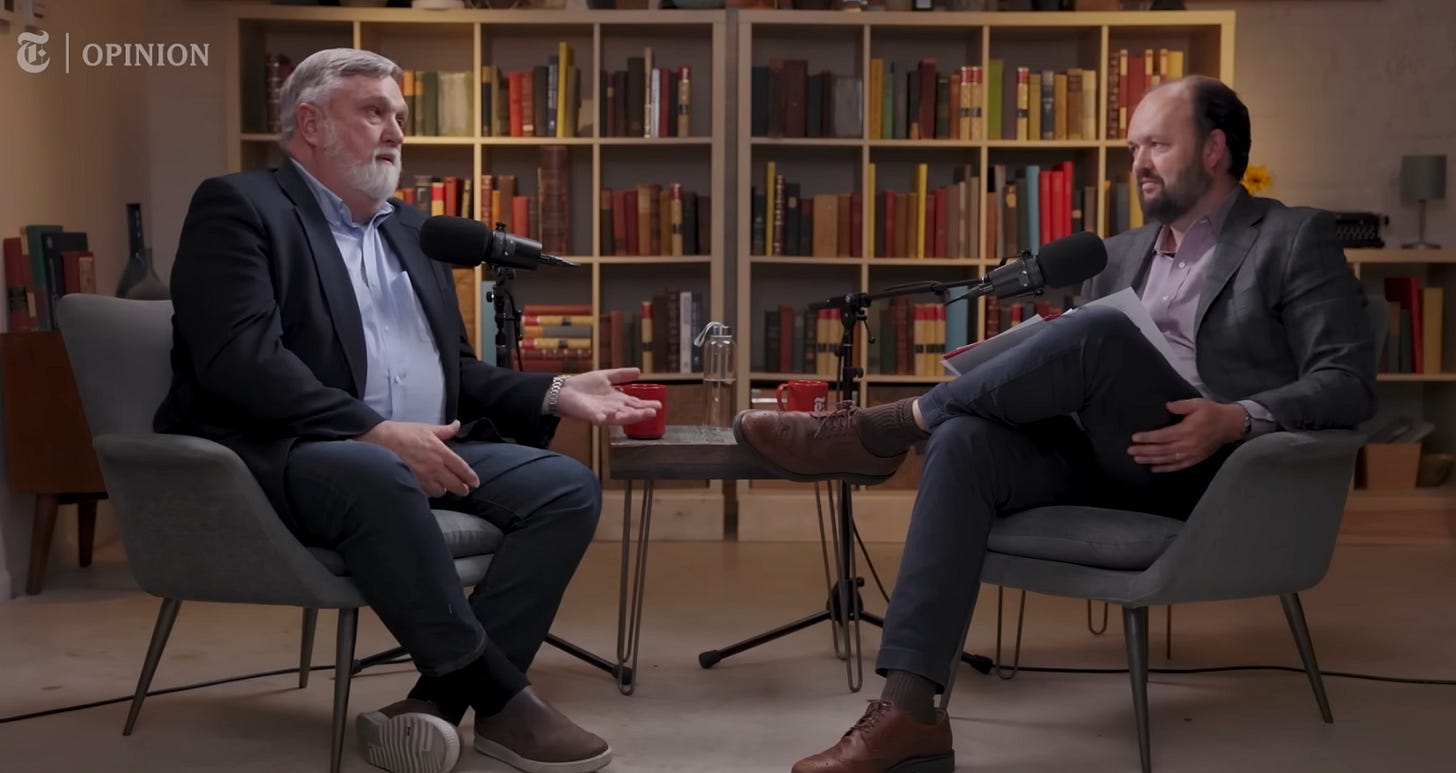Ross Douthat's Podcast is Proof that Winsomeness is Still a Thing
Three years ago, I registered a complaint about the evangelical debates over “winsomeness.” Specifically, I said that these debates almost all treat interpersonal dynamics as Internet things. Arguing about civility is what people do when technology and mobility allow them to withdraw from the real world.
Abandoning civil discourse is a romantic idea for…



